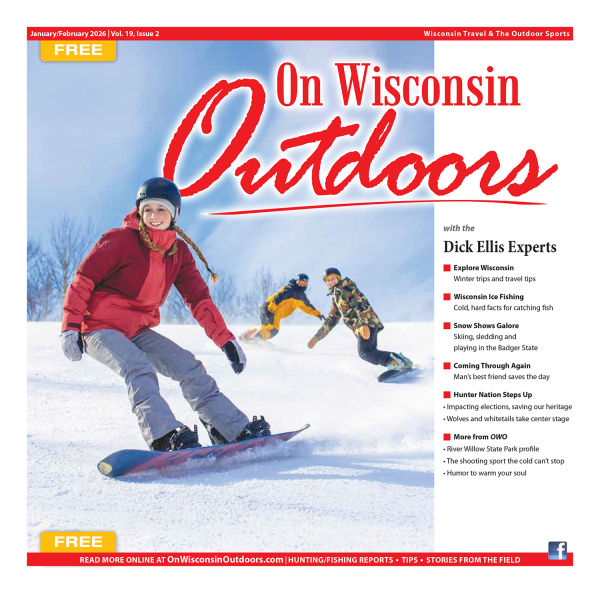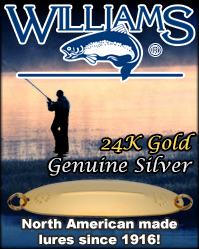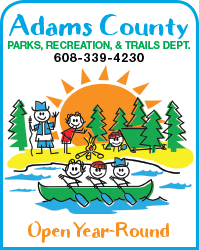Fencerows: Little Oulu, Big Sisu
By John Luthens
The drenched fields alongside Muskeg Road had surrendered to birch thickets and wildflowers. Its graveled lane ran red from an early-morning summer storm, ironed clay from the Lake Superior country in Bayfield County seeping into the overgrown thickness in trickles of storm-fought blood.
A shaft of sunlight broke free as I pulled on waders and strung up my rod. With a final gust of thunder across distant Lake Superior, the undersides of the birch leaves showered the dawn in wet silver and the modern world billowed away with the passing of the rain. I was above a hidden trout stream in the heart of Oulu – as close to Finlander heaven as I could mortally get.
Resting on the tailgate, I surveyed the dark line of alders coiled like a snake in the morning mist to mark the stream. Silhouetted on the hayfield horizon was a rustic Finnish homestead, a physical reminder of settlers long come and gone that is currently being restored by a local historical society. Myself, I’d come seeking reclusive brook trout in a near-impossible environment, but deeper reasons for my journey rose from the land around me.
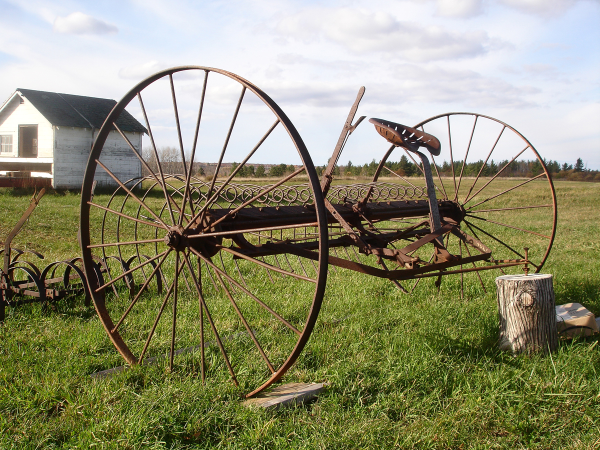
A view across the fields and down to the muskeg from the edge of a Finnish homestead at the Oulu Cultural and Heritage Center.
It’s a remote slice of far northwestern Wisconsin; towering forest meeting cutover field, winding with rivers and streams and overseen by the dark and pounding waves of Lake Superior. Finnish immigrants journeyed here to begin a new life, my own ancestors among them. The terrain is jaw-dropping gorgeous and stunningly tough. I’ve been told through the campfire wisdom of learned generations that it reminded the Finns of home.
They call it Oulu, named after an area in Finland where many of the original settlers emigrated from; carving a township into the wilds of Wisconsin, logging virgin pine and pulling endless stumps for fields, mining the earth for iron and copper and struggling to wrench crops from sand and clay. Summer mosquitoes swarmed like dragonflies and winter temperatures blasted the bottom off of the thermometer. It was a hard life but, for the Finns, the remote forest glades and rivers sang with the freedom of a new land.
Lost in thought, I found the morning was getting along when I slid from my wandering reverie up the streams of history and into the present conditions before me. A muskeg is an acidic bog where clay-bottomed soil holds groundwater on the surface and hides it beneath fields of green. It seems tame enough from the outside, but stories tell of tractors and trucks sucked through the clay bottom after a heavy rain to disappear forever. Muskeg Creek itself was tangled in logs, banks drooping in a summer rainforest of hanging grass and nettle. What a place.
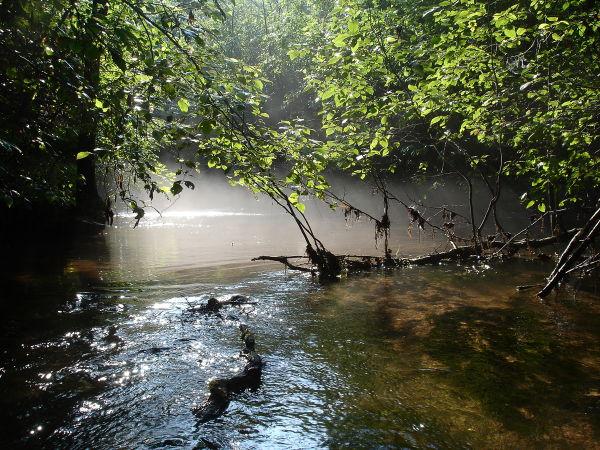
Muskeg Creek in the morning mist.
Further north, the Muskeg joins the Iron River, which in turn feeds the iron thirst of Lake Superior, but no bridge of steel, iron, or wood for that matter mars the Muskeg as it slides beneath its namesake road, only a culvert. In the middle of a hot, dry spell it might even be classified as a trickle, and a traveler could roll right over it without knowing it was there. One might think that a body of water with a road named after it would be a little more obvious but, in little Oulu, the nature of life, as well as the secrets of the Muskeg, often lie camouflaged in legend.
Summer warmth met spring-fed water. Steam curled from the surface to dance through the trees. The air carried the humid feel of a sauna – a storied ritual in the Finnish culture. For a true Finn, smoked woodstoves and steam on the rocks is like attending weekly confession. It won’t help a body live forever, but it sweats the heavy dirt from the soul. I tend to think trout fishing pulls off the same magic.
Picture a graceful fly caster looping line across a shining river, wide spaces and boulder runs, perhaps a mountain and a tall pine thrown in for good measure. Then crumple up that picture and toss it straight in the fire. Tangles like the Muskeg are not so easily captured. While a long fly rod is a must for angling through the brush, leave the fly box at home and bring a container of night crawlers instead. There are miles of pristine waters in northwest Wisconsin where a fly fishing purist can joyfully ply his trade, but the stretch of Muskeg running through little Oulu ‘aint one of them.
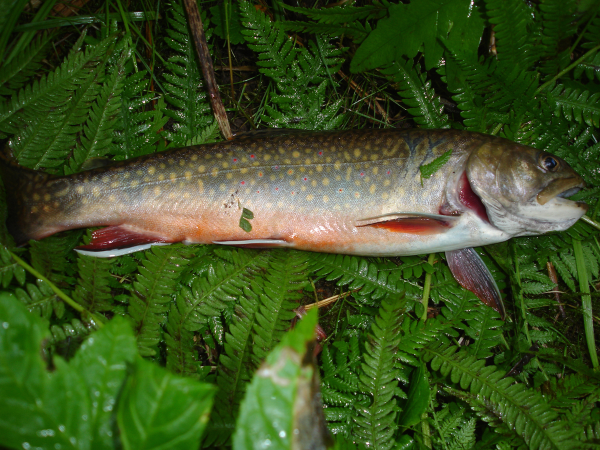
Brook trout from the dark waters of the Muskeg.
I crawled low into a shadowed world, an eerie realm with massive spider webs brushing the face and unseen animals skittering above the banks. The whinny of a horse carried from the unseen fields, but where it pastured was never revealed. Time stood still and I moved slowly, often inches at a time. The bottom was slippery with clay, and watered paths like the Muskeg refuse to reveal their hiding spots until you are right on top of them.
I hooked brook trout in the open stretches. They tapped like gentle woodpeckers on the end of the line and chewed my bait to shreds. The trout were gorgeous, but small, 5 and 6 inches. Oftentimes they don’t get much bigger in a tiny stream, and I’ll admit I wasn’t certain. I needed to suffer a little harder to find out.
Finnish people have a name for this methodical movement in search of the greater good. They call it Sisu: a word loosely translated as guts, but having highly personal connotations. My definition, is that it falls somewhere between endless sacrifice and hard-headed insanity. I submit to the school of thought that big Sisu more important than a landing net on a trout stream like the Muskeg.
It was a chess match, ducking into the far reaches of the Muskeg, spotting undercut banks and logs and trying to drift beneath them. I’d study the layout for a good 5 minutes before making my move, threading my rod through the alders and praying for a lucky drop. Every inch of the world dripped with moisture, my line wrapping and sticking to trees and ferns. I lost hooks on every other cast, but within an hour I’d landed two solid brookies for breakfast. I was in an impossible predicament when the third one erupted.
Hanging onto a wet and rotted limb that protruded from the side of a steep bank, I leaned over and plopped a juicy worm above a brush pile. It amounted to only a half-foot of cast, but the current sucked it down. Line stripped off the reel in a heartbeat as a foot of brook trout smashed from the pile.
Holding my rod with one hand, I curled my other around the tree perch to tension the line and keep the trout from diving back to his tangled home. When the line wrapped around a pile of sticks, it was more luck than skill. The limb broke and I fell into the water, the trout still throbbing on the other end. I wallowed into the snag and slid the line free, horsing the trout onto the bank like a backwoods schoolboy.
I was dripping from head to toe – no need to consciously wet my hands before grabbing the fish. It was one of the nicest I’d ever taken on a brush trout stream, purple spotted and bright red around the fins. It pulsed with living color in the Oulu shadows.
I figure my Finnish ancestors would have plopped the fish in their creel before heading back to work in the fields. It was different back then. I was only a time-traveling visitor dancing with ghosts. The trout was hooked just beneath the front jaw – an easy release.
All that commotion and the trout swam back to its muskeg, hidey hole anyway. Little Oulu, big Sisu: Timeless words in a timeless place. I’m only one-half Finnish, so I don’t pretend to totally understand. I just know it happened.
John Luthens is a freelance writer from Grafton, Wisconsin. His first novel, Taconite Creek, is available on Amazon or at www.cablepublishing.com or by contacting the author at Luthens@hotmail.com
